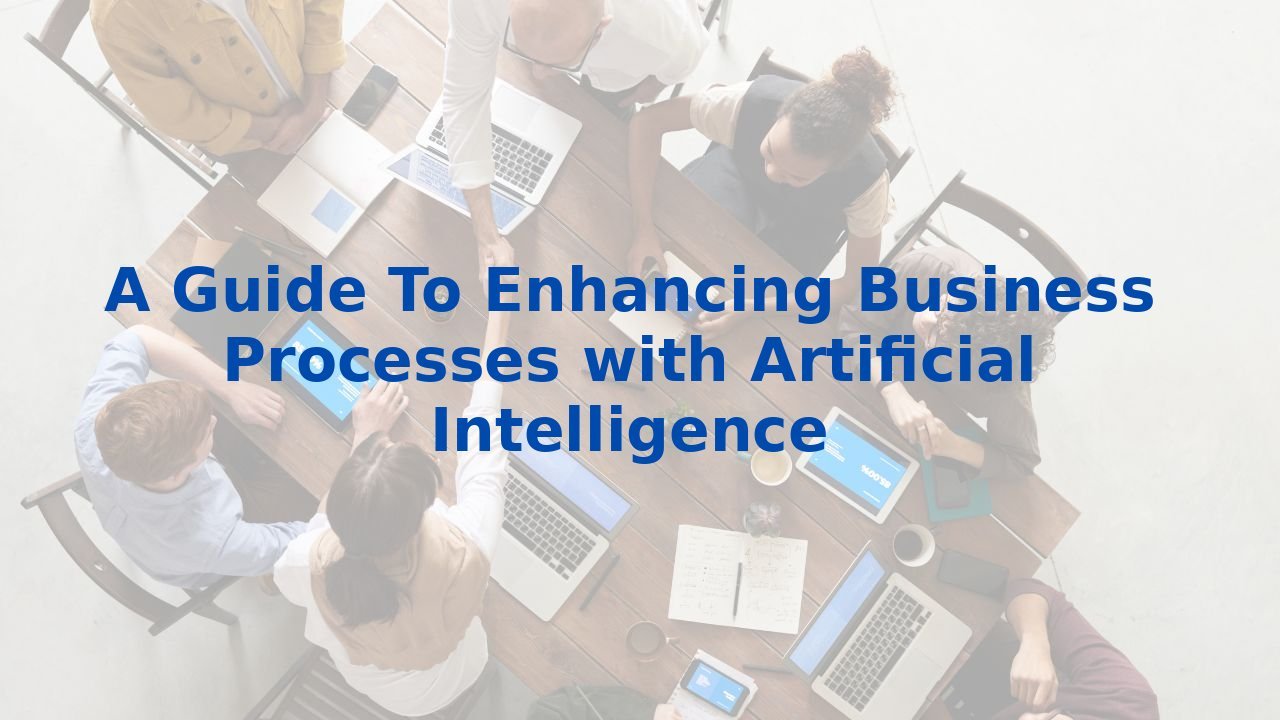A Guide to Enhancing Business Processes with Artificial Intelligence
A Guide to Enhancing Business Processes with Artificial Intelligence
In today's rapidly changing landscape, businesses are increasingly searching for solutions to streamline operations, boost productivity, and enhance decision-making capabilities. One of the most remarkable advancements in this realm is the integration of Artificial Intelligence (AI) into business processes. This powerful technology has not only transformed various aspects of how organizations function but has also become crucial for staying competitive in the modern marketplace.
The Evolution of Business Process Management
Business Process Management (BPM) has long been a vital component driving operational efficiency. It encompasses the systematic analysis, design, execution, and improvement of business processes to achieve specific goals. However, the infusion of AI has catalyzed a profound transformation in BPM. Organizations can now reach new levels of efficiency and value in their operations, setting themselves apart in an increasingly crowded field.
How AI Enhances Business Processes
1. Process Optimization and Automation
AI shines brightly in the realm of process optimization and automation. By automating repetitive and high-volume tasks, businesses can significantly lighten the load on their employees. This automation not only minimizes errors but also improves overall quality and efficiency. Picture streamlined workflows for tasks such as vacation requests, invoice processing, and employee onboarding—AI makes these once tedious tasks a breeze.
2. Data Analysis and Visualization
The ability of AI to analyze complex datasets extends far beyond human capabilities. With machine learning and deep learning algorithms, AI can detect patterns and dependencies within process data, which forms the foundation for sophisticated models. These models empower businesses to calculate key performance indicators (KPIs), identify bottlenecks, and anticipate the effects of process changes before they even occur.
3. Real-Time Monitoring and Process Mining
Real-time monitoring is another powerful capability afforded by AI. With AI-driven process mining, companies can gather up-to-the-minute information about their operations, allowing them to address issues promptly. Moreover, AI has the remarkable ability to automatically identify and model processes through data from various sources, such as Customer Relationship Management (CRM) and Enterprise Resource Planning (ERP) systems.
4. Decision-Making Support
AI goes beyond mere automation; it also provides invaluable support during complex decision-making processes. By processing both structured and unstructured data from numerous sources, AI extracts essential information to unveil patterns that inform crucial business decisions. This not only aids decision-makers but also prompts them to analyze potential risks and consequences thoroughly.
Benefits of AI in Business Processes
The incorporation of AI into business processes comes with a multitude of benefits, including:
- Improved Efficiency: With AI handling automation, employees can refocus their efforts on higher-value tasks.
- Enhanced Decision-Making: AI delivers data-driven insights, paving the way for well-informed choices.
- Increased Accuracy: AI reduces the chances of human error, bolstering precision within processes.
- Real-Time Monitoring: Immediate insights enable prompt responses to potential challenges.
- Process Optimization: The identification of inefficiencies allows businesses to enhance productivity and reduce costs.
The Role of Employee Training in AI Integration
While AI stands as a formidable tool, it shines brightest in organizations where employees understand and know how to leverage its capabilities. Adequate training is essential for harnessing AI's full potential, and this involves:
- Understanding AI Capabilities: Employees must familiarize themselves with how AI can take over tasks, analyze data, and support decision-making processes.
- Developing AI Skills: Training programs should emphasize skills such as data analytics, machine learning, and natural language processing.
- Adapting to New Technologies: Employees need to remain flexible and eager to learn about innovative technologies and evolving workflows.
Organizations that invest in AI integration while providing training for their employees position themselves to thrive in an ever-evolving landscape. By fostering an environment where teams feel empowered to embrace these technologies, they unlock new levels of productivity and innovation.
Conclusion
The journey towards integrating AI into business processes is a revolutionary step toward achieving heightened efficiency and operational excellence. From automation to enhanced decision-making, AI fundamentally reshapes how businesses operate. Yet, to reap the full rewards, organizations must equally prioritize employee training, ensuring that their workforce is equipped to fully utilize these transformative tools. By embracing AI with the right knowledge and skills, businesses set the stage for success in an increasingly competitive arena.



